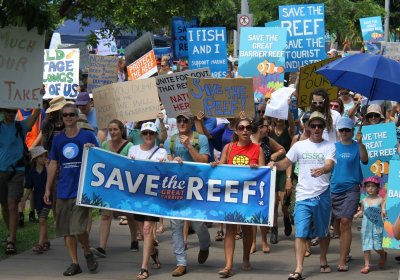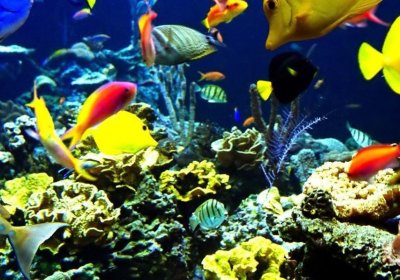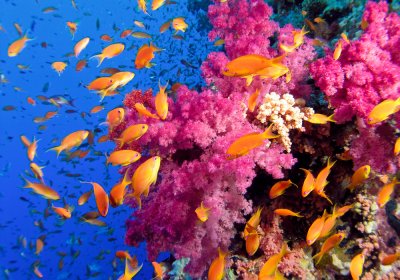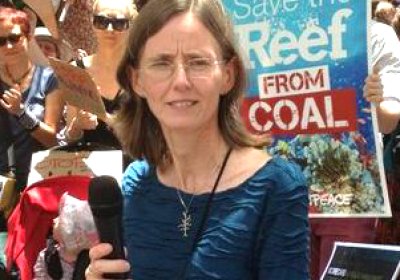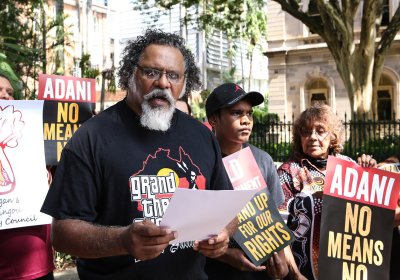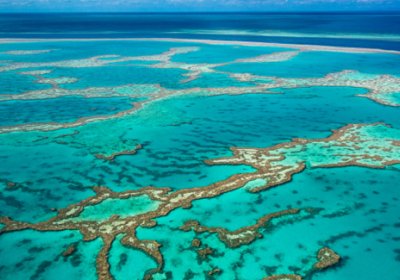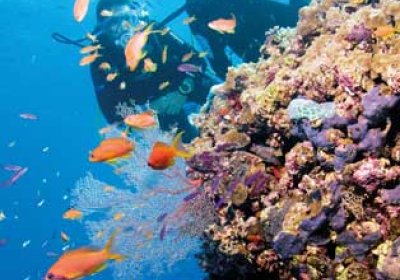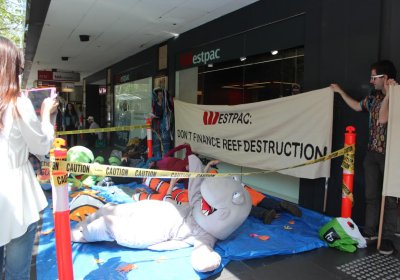The Great Barrier Reef is in immense danger and if nothing is done to save it, it will simply be destroyed.
Australia is the largest per-capita producer of carbon of any developed Western country, and it is a silent national disaster. The Australian Academy of Science, the UN and Great Barrier Reef Marine Park Authority have all stated that, in the face of rising carbon emissions decimating the reef, we cannot afford to do nothing.
Great Barrier Reef
In our “A World to Win” series, Resistance: Young Socialist Alliance seeks to give voice to the ideas and demands of radical young people involved in the struggle to make the world a better place.
In this week's article, Lucinda Donovan puts the case for why green capitalism cannot solve the climate crisis.
* * *
Environment groups have welcomed the passage of legislation on November 12 that restricts sea dumping and port expansion in the Great Barrier Reef heritage area as a victory for people power.
The Queensland government's Reef Water Quality Protection Plan released its Report Card 2014 on September 21. It states, “Results show the need to accelerate the rate of change and drive innovation to meet the ambitious targets.”
Queensland Environment Minister Steven Miles, who released the report, said there was more bad news than good in the report.
“If one of my kids came home with a report card like this, I'd be a bit disappointed,” he said.
National Australia Bank (NAB) has decided not to fund the Adani coalmine, rail and port facilities on the Great Barrier Reef coastline.
The Korean company LG has also announced it will not buy the company's coal.
Korean electronics giant LG signed a letter of intent with Adani last year to purchase 4 million tonnes of coal from the Carmichael mine. However Adani has now lost one of its two big external customers when the letter of intent expired and was not renewed.
The Australian Marine Conservation Society released this statement on July 21. * * * The Australian Marine Conservation Society and the Australian environmental movement is in mourning over the sudden and unexpected loss of Felicity “Flic” Wishart who passed away in her sleep on July 19 aged 49. Flic was one of Australia’s leading conservationists and was a great and inspiring champion for the planet, the cause she dedicated her life to.
In a powerful escalation of the global campaign against Indian mining company Adani’s proposed Abbot Point and Galilee Basin coal projects, more than 120 people peacefully protested on June 22 at the Abbot Point port.
The protest was organised by 350.org and the Reef Defenders Alliance.
Representatives of the Wangan and Jagalingou people made this announcement on March 27.
The Queensland Labor government has paved the way for the huge expansion of coalmines in the Galilee Basin.
New Premier Annastacia Palaszczuk announced on March 11 that a deal had been made with Adani and GVK-Hancock to allow the dumping of dredge spoil from the expansion of the coal port at Abbot Point in unused industrial land adjacent to the port.
Palaszczuk said the deal met her election campaign commitment to ban dumping of dredge spoil in the Great Barrier Reef Marine Park or in the Caley Valley Wetlands.
More than 500 people held political parties contesting the Queensland elections to account over the protection of the Great Barrier Reef at a public forum at Brisbane City Hall on January 22.
The forum was was organised by the Australian Marine Conservation Society (AMCS), Queensland Conservation Council, the Wilderness Society, Greenpeace, Australian Youth Climate Coalition and GetUp. It was chaired by Professor Ian Lowe.
Fifty protesters, and a larger-than life Nemo, protested outside Westpac's Sydney office on November 9.
Organised by Australian Youth Climate Coalition (AYCC), the protesters handed more than 15,000 postcards to the bank calling on it not to fund the massive coalmining expansion at Galilee Basin, which would lead to the Great Barrier Reef being dredged to facilitate coal transport. The reef was put on the World Heritage List in 1981.
Something fishy was going on outside Westpac headquarters in Melbourne on October 11, as colourfully dressed protesters came together to reveal the true cost of potential investment in the Great Barrier Reef coal port expansion.
Protests took place across Australia against controversial new plans to increase coal shipping through the World Heritage Area.
Though Westpac released its own promising report on climate change in 2009, Market Forces estimates it has since lent more than $900 million to fossil fuel export projects within the marine park.
- Previous page
- Page 3
- Next page
